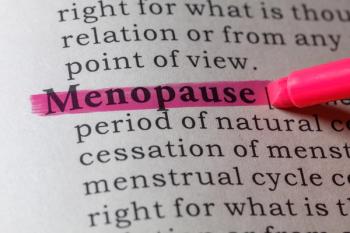
In a recent study, menopausal vasomotor symptoms were successfully treated using the selective neurokinin-1,3 receptor antagonist elinzanetant (Bayer).

In a recent study, menopausal vasomotor symptoms were successfully treated using the selective neurokinin-1,3 receptor antagonist elinzanetant (Bayer).

Multiple hormonal and non-hormonal therapies are available for treating genitourinary syndrome of menopause in breast cancer survivors, but combination therapies are the most effective.
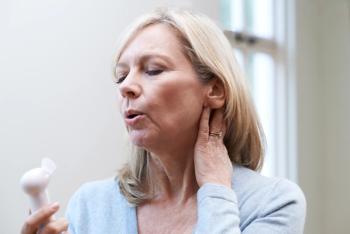
In a recent study, menopause was associated with an estimated annual financial loss of $1.8 billion in work time and $26.6 billion in medical costs in the United States.

In a recent study, female reproductive hormone concentration and age at menopause were impacted by smoking, alcohol, and coffee consumption.

In a recent phase 1 trial, DARE-HRT1 showed positive safety and acceptability results for treating moderate-to-severe vasomotor symptoms in postmenopausal women.
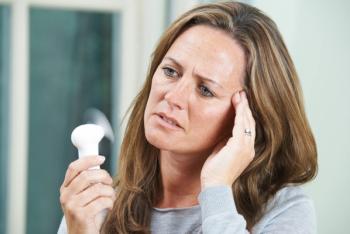
A literature review found that although hormonal therapy with estrogen is the first-line therapy for bothersome vasomotor symptoms (VMS) and genitourinary syndrome of menopause (GSM) symptoms, nonhormonal medications such as paroxetine and venlafaxine can also be effective for VMS.

A recent study showed an association between menopause and increased glaucoma risk, with a potential for estrogen-based treatment.
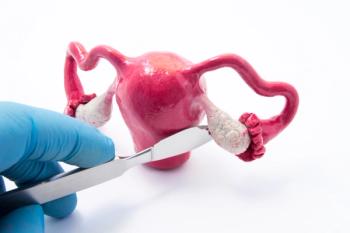
In a recent study, women who received risk-reducing salpingo-oophorectomy when premenopausal more often experienced discomfort during sexual activity and vaginal dryness than those receiving it when postmenopausal.
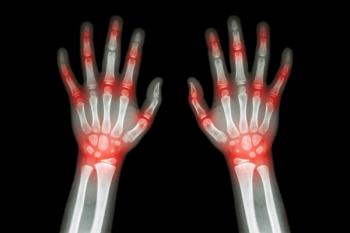
An analysis of perimenopausal women with rheumatoid arthritis indicated that patients receiving exogenous sex hormones more frequently achieved SDAI- and CDAI-defined remission.

Newly published data from a phase 3 study demonstrate the safety and efficacy of fezolinetant (Astellas) for treatment of VMS due to menopause.

At the International Society for the Study of Women’s Sexual Health conference, held March 2 through 5 in St. Louis, Missouri, Michael Krychman, digital editor for Contemporary OB/GYN® talked with Barb Dehn, NP, from El Camino Women’s Medical Group in Mountain View, California, about the importance of helping professional women cope with menopause.

A look at vaginal laser surgery for overactive bladder syndrome.

A new study suggests that ospemifene can reduce harmful bacteria and significantly contribute to vaginal health in postmenopausal women.

Investigators identify a strong association between exposure to air pollution and bone mineral loss in postmenopausal women.

Further adding to the discussion surrounding the impact of endocrine-disrupting chemicals, an analysis of data from the SWAN Multipollutant Study suggests increased exposure to phthlates was linked to a 30-63% increase in risk of developing diabetes among White women in midlife.
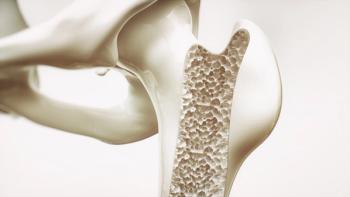
The US Food and Drug Administration has accepted the Biologics License Application (BLA) for a proposed biosimilar of denosumab (Prolia and Xgeva; Amgen) for treatment of various conditions.

Research reveals that hormone therapy and alternative medicine do not enhance quality of life for midlife women experiencing menopause symptoms.

A recent study analyzed the effect artificially sweetened beverages have on urinary incontinence in women.

POLL: How do you compare with your colleagues in your comfort level for prescribing hormone replacement therapy for symptoms of menopause.

A new study in Menopause found body dissatisfaction to be a primary cause of eating disorders, especially during perimenopause.

If approved, DARE-HRT1 would become the first FDA-approved monthly intravaginal ring to deliver both estrogen and progestin hormone therapy.

Rebecca Thurston, PhD, sits down to discuss her research presented at the NAMS Annual Meeting on vasomotor symptoms and cardiovascular health.

For World Menopause Month, we revisit some of this year’s top menopause articles.

Rebecca Thurston, PhD, sits down to discuss the latest news from the North American Menopause Society Annual Meeting.
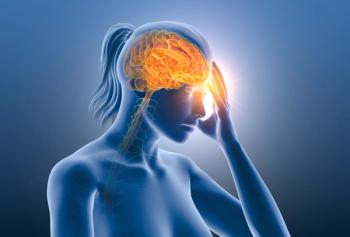
History of migraine may be associated with poor sleep in premenopausal and perimenopausal women, according to research presented at the North American Menopause Society Annual Meeting.